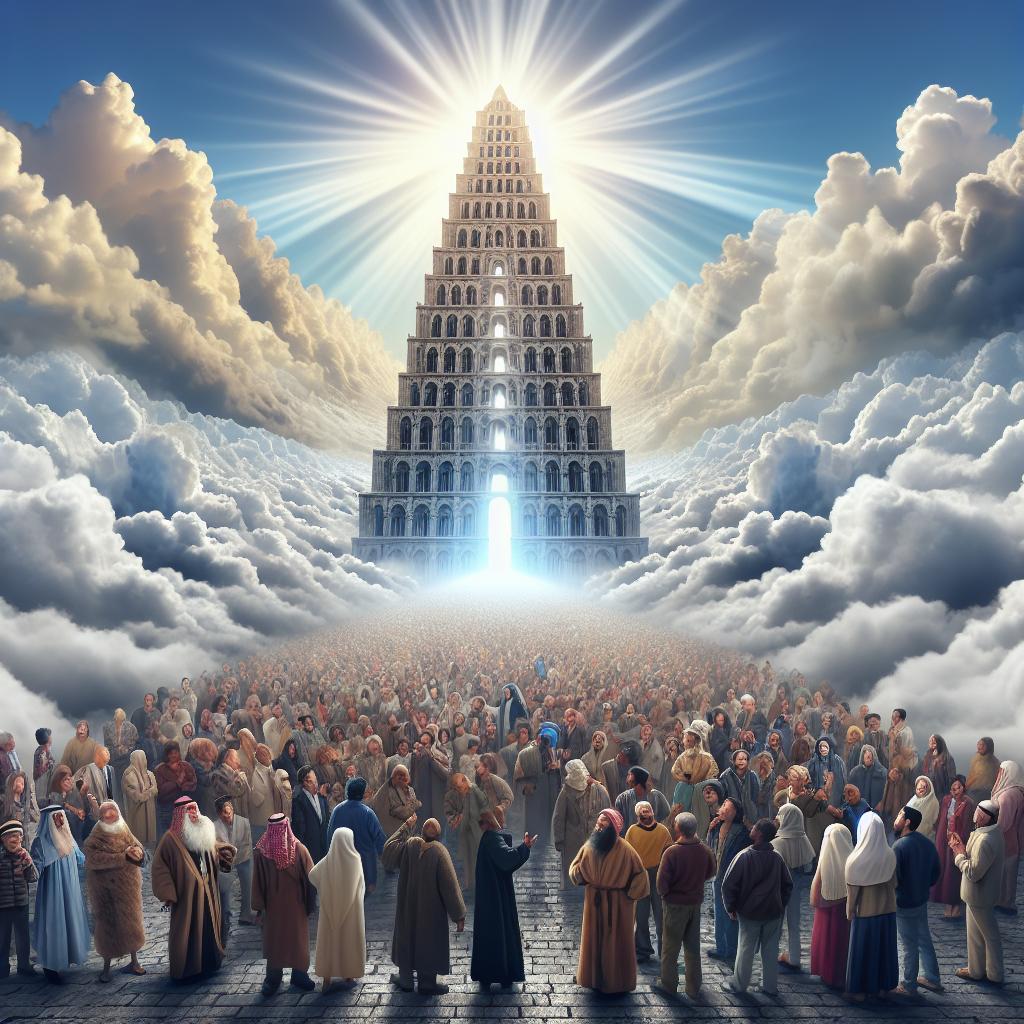
Transformative Towering Change: Embracing God's Power for Renewal
Published: 21 May 2024
Towering Change: The Origin of Languages
The origin of languages is a topic of great interest, particularly for linguists and those preparing for missionary work. In the book of Genesis, it is stated that after the global flood, humanity defied God's command to spread out and fill the earth. Instead, they gathered in the plain of Shinar and began constructing a city called Babel, along with a tower that would reach the heavens. As a result of their rebellion, God confused their language so that they could no longer understand each other. This event, known as the Tower of Babel, led to the creation of different languages.
At first glance, this biblical account may seem to suggest that all languages spoken today originated at the same time through miraculous means. However, this interpretation overlooks the fact that languages have been changing and evolving throughout history. Linguists are well aware of the ways in which languages change over time and the historical links that exist between seemingly different languages.
The evidence of language change is undeniable. Even comparing English from 600 years ago, such as Geoffrey Chaucer's Canterbury Tales, to modern English reveals significant differences. The spread of writing has slowed down the pace of language diversification, but in cultures without a written language, changes can be dramatic. Over time, isolated groups that once spoke the same language can become unable to communicate with each other.
Furthermore, there is compelling evidence of how languages are related to one another. For example, if you can read English and German, you may notice similarities when attempting to read Dutch text even if you cannot understand spoken Dutch. This suggests that Dutch is somehow "in between" English and German. Similarly, visiting a 500-year-old Dutch cemetery in Melaka revealed that the inscriptions on tombstones were more comprehensible than modern Dutch.
These linguistic connections are not limited to just a few languages; they extend to entire language families. The Indo-European language family, which includes German, English, Greek, and Russian, demonstrates clear links between its members. Similarities in words for common things, such as numbers or animals, indicate a shared ancestry. This pattern is consistent with the idea that a small number of languages were created at Babel and have since diversified into the vast array of languages we have today.
It is important to note that while languages change over time, this process is distinct from biological evolution. Language change is primarily driven by human creativity and flexibility, not random genetic mutations filtered by natural selection. In fact, languages undergoing change often become simpler rather than more complex.
The Tower of Babel event described in Genesis provides an explanation for the origin of different languages. When God confused the languages at Babel, people with different languages would have been unable to understand each other and would have been driven away from each other due to communication breakdowns. Over time, as these groups moved further apart and became separated, their languages could change and split into different new languages.
The diversity of languages in the world today supports this biblical account. Estimates suggest that there are around 8 to 20 language families globally. Each of these language families can be traced back to a specific "stem" language created at Babel. Attempts by evolutionists to link different language families together have been unsuccessful, providing further support for the idea that the many languages we have today arose from a small number of created languages.
In conclusion, the biblical account of the Tower of Babel provides a comprehensive explanation for the origin and diversification of languages. While languages change over time, this process is distinct from biological evolution. The evidence of linguistic connections between diverse language families supports the idea that a small number of created languages gave rise to the vast variety of languages we have today.
Why This Matters:
Understanding the origin of languages helps us appreciate the diversity and complexity of human communication. The biblical account of the Tower of Babel provides a historical and theological perspective on language diversity, emphasizing the importance of obedience to God's commands. It also showcases the remarkable unity of humanity before the dispersion at Babel and the subsequent development of different languages.
Think About It:
- How does the Tower of Babel account challenge the notion of language evolution from a common ancestral language?
- What implications does the diversification of languages have for missionary work and cross-cultural communication?
- How does the evidence of linguistic connections between language families align with the biblical account of Babel?
